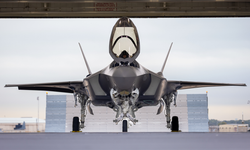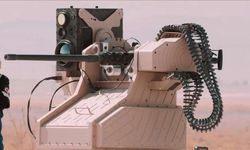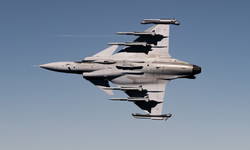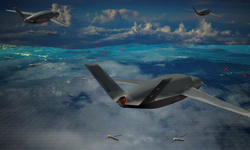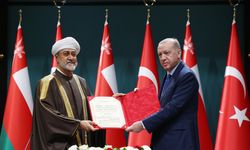The French Army has begun field testing a mobile micro-factory designed to manufacture FPV drones directly on the front lines. Developed by Périgueux-based start-up Per Se Systems, the compact facility leverages multiple 3D printers to produce first-person view drones with a lead time of just three hours per unit. The initiative is aimed at providing an autonomous and localized solution for meeting urgent tactical drone needs without relying on centralized logistics networks.
The system was unveiled in a post on the French Army’s official X account on June 2, 2025. Housed within a trailer and designed for high mobility, the micro-factory includes multiple additive manufacturing units capable of collectively producing up to ten drones per hour. Power is supplied by a generator enabling 19 hours of continuous operation. The setup includes air conditioning, a smoke extraction system, and a solar-powered lighting unit to support safe use under field conditions.
Per Se Systems was founded in 2023 by Paul Pelletier and Julian Faraut, initially engaging with the military to develop target drones for training exercises. Their SL450 prototype, created in partnership with the 17th Artillery Group, led to further development of the mobile manufacturing unit now being tested.
The approach reflects a broader shift in defense logistics, emphasizing flexibility and resilience in high-intensity environments. Unlike traditional production models that rely on fixed infrastructure and long supply chains, this concept allows military units to maintain equipment readiness and adapt quickly to evolving battlefield needs.
The war in Ukraine has underscored the tactical relevance of FPV drones, which are often used in high quantities for short-range precision attacks. In some conflict zones, usage rates have reportedly reached hundreds of drones per day. This surge in demand has exposed limitations in conventional manufacturing and distribution systems, prompting military and non-state actors alike to explore localized and improvised production methods.
Per Se Systems’ design aims to address these challenges. The system is intended to function independently of external facilities, with potential civilian applications under study, including deployment in urban or remote locations. The company has filed multiple patents related to guidance and integration technologies and has stated its goal of replacing Chinese-origin components in favor of domestically sourced alternatives for future models.
Currently working with twelve French Army regiments and participating in several undisclosed development programs, Per Se Systems is contributing to a growing emphasis on distributed manufacturing in defense. The micro-factory project is supported by the 17th Artillery Group command and represents an effort to adapt production models to the requirements of decentralized, high-tempo operations.
While the system offers advantages in responsiveness and autonomy, scalability remains a key consideration. Meeting long-term military demand would likely require expanding production capabilities beyond the current micro-factory model.
Ce n'est pas un nouveau blindé de l'armée de Terre. Ce n'est pas non plus la dernière version d'une arme bourrée de technologie.
C'est la FMAD. Et elle peut être tout aussi redoutable sur le champ de bataille... ⤵️@CDC17GA #Innovation pic.twitter.com/7xqTRzR5cm — Armée de Terre (@armeedeterre) May 27, 2025
